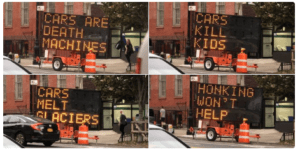Each Friday, the Wagner Planner editorial board will publish a news roundup of recent planning news. Topics range the gamut of urban planning concentrations, but will mostly be at the discretion of the editors.
Brendan’s Picks
Leadership in Urban Planning, After Two Successful Stints as a Planning Director
“In this interview, Park shares insights about planning and urban design, like “zoning is not planning and vice versa,” that should be shared widely to share the message of the potential, and limitations, of urban planning to a wider audience.” (Planetizen)

Most scooter riders using the sidewalk are afraid of cars, new survey shows
“The email survey of 614 Lime users whose latest ride was in Salt Lake City found that sidewalk ridership increases by 310% when no bike lane is available; when one is, 82.2% say they ride in it…Seven in 10 respondents said they would never ride on sidewalks if there were protected bike lanes, and more than 50% said painted bike lanes would help. Nearly half said greater enforcement of scooter regulations by police with a $50 ticket would have the same effect.” (Salt Lake Tribune)
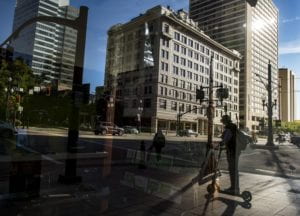
House Transport Chair Rips Uber, Lyft
“…DeFazio used his opening remarks to lambast both companies for contributing to longer traffic delays and higher carbon emissions, grifting its drivers by classifying them as contract workers, and putting riders at risk by not running effective background checks.” (Streetsblog)
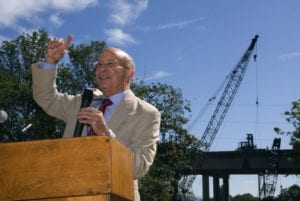
“Are many homeless people in L.A. mentally ill? New findings back the public’s perception
The Times examined more than 4,000 questionnaires taken as part of this year’s point-in-time count and found that about 76% of individuals living outside on the streets reported being, or were observed to be, affected by mental illness, substance abuse, poor health or a physical disability.” (LA Times)
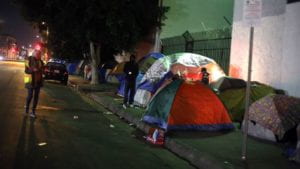
Mayelly’s Picks
It Seems like Every City Wants to be Smart: Not All of Them are Succeeding
“Today, improving urban services through digital transformation is a huge industry, dominated by the likes of Cisco and IBM. But the idea of a “smart city” encompasses more than the clever application of technology in urban areas. That technology must also contribute to making cities more sustainable and improving the quality of life for the people who live there.” (Fast Company)

Solmove Seeks to Turn Germany’s Roadways Into Solar Power Source
“If Germany is to achieve its goal of 100 percent renewable energy by 2050, rooftop solar panels simply won’t suffice. That’s why engineer Donald Müller-Judex has built the country’s first solar road on a small bike path in Erftstadt, near the city of Cologne.”(Stanford Social Innovation Review)

What makes a city great? A new way to look at urban data will give us clues.
“Enter Geoff Boeing at the University of Southern California in Los Angeles, who has developed a range of computational tools that have the potential to transform the way urban planners think about cities. Boeing’s tools can quickly create Nolli maps, figure grounds, and various other urban diagrams in ways that set the stage for a revolution in urban planning.” (MIT Technology Review)
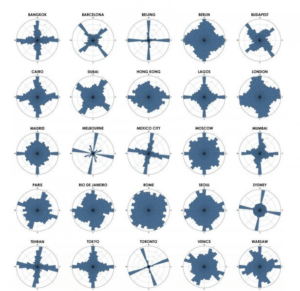
‘Honking Won’t help’: Anti-car Street Signs Keep Appearing in Brooklyn
“About a week ago, electronic road signs on Vanderbilt Avenue in Brooklyn started to have their messages changed, with construction instructions getting replaced by a very different alerts…” (Curbed)
